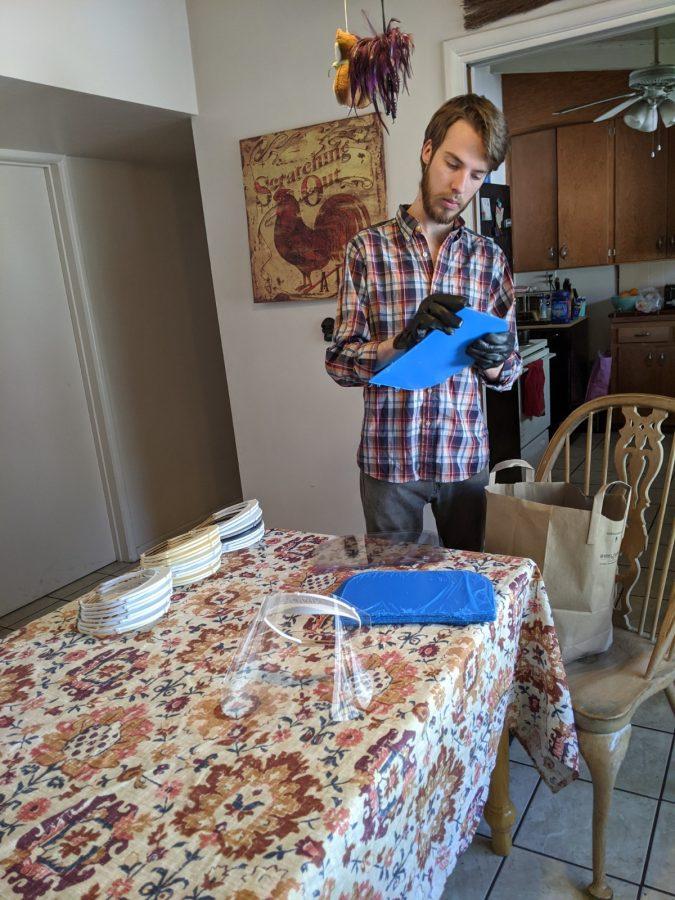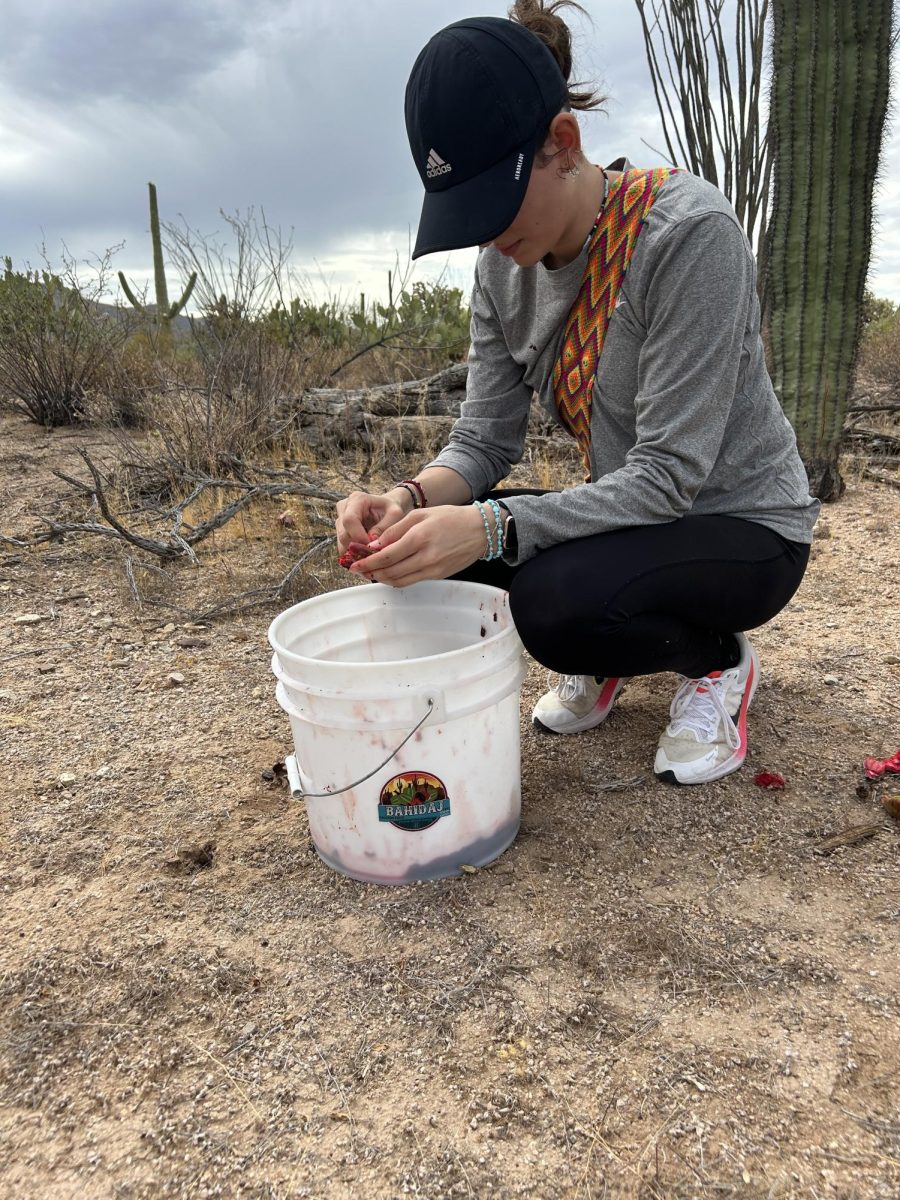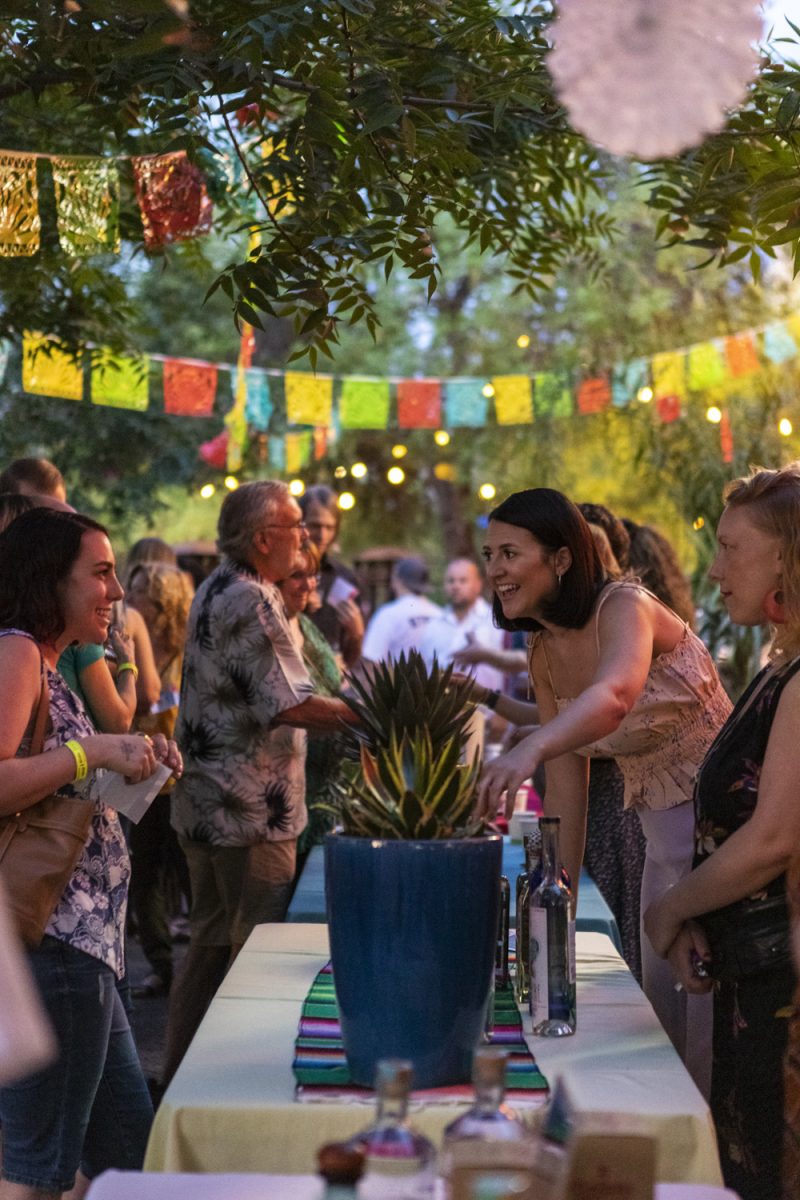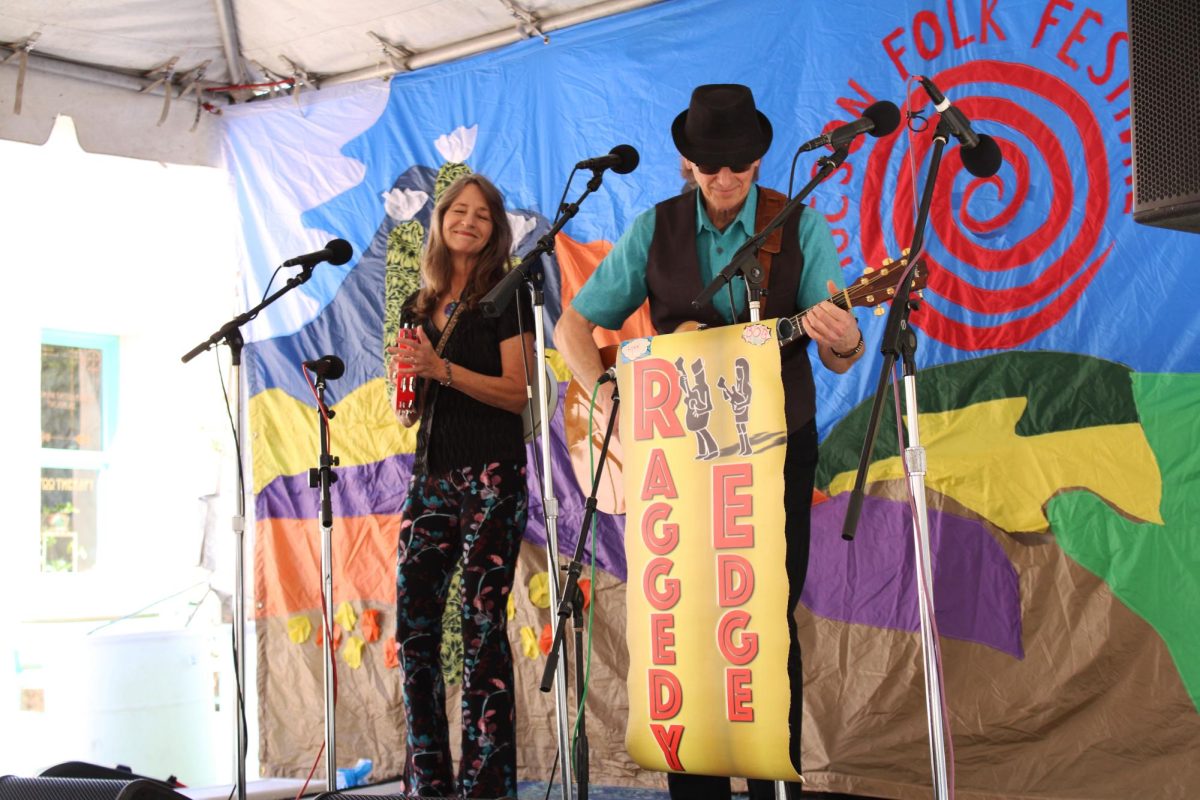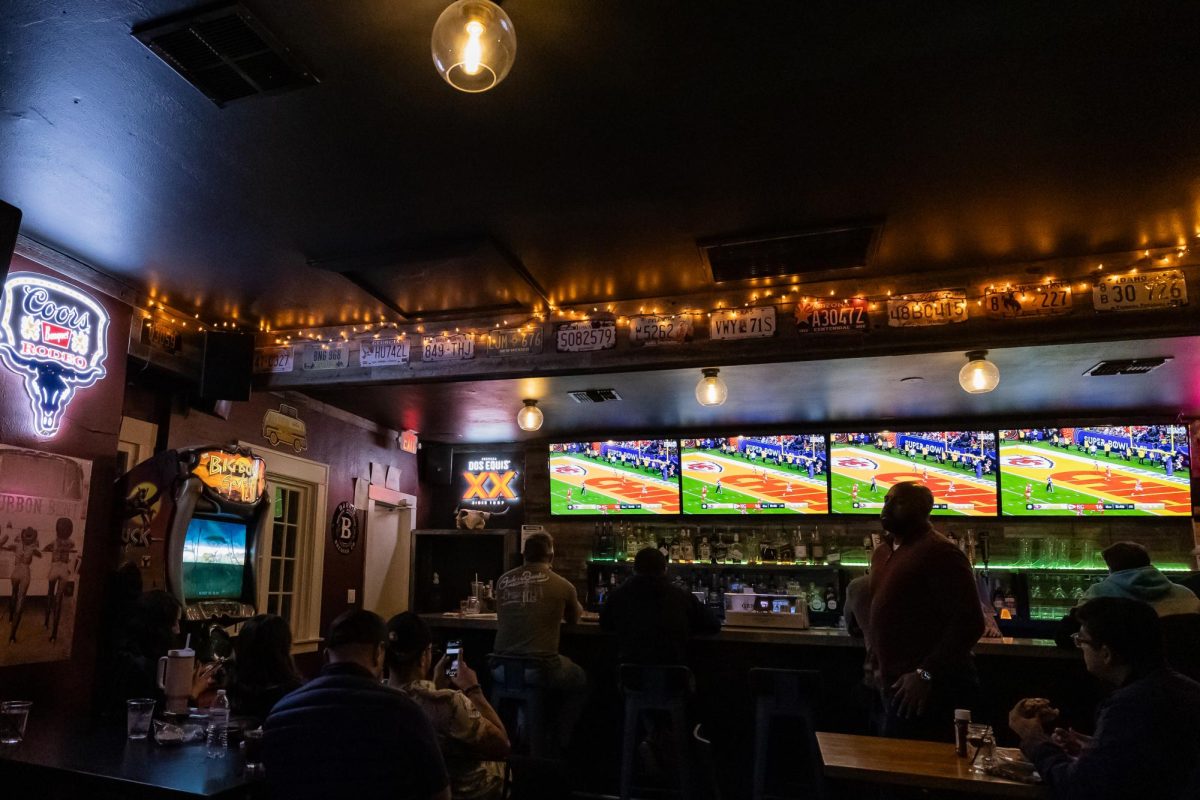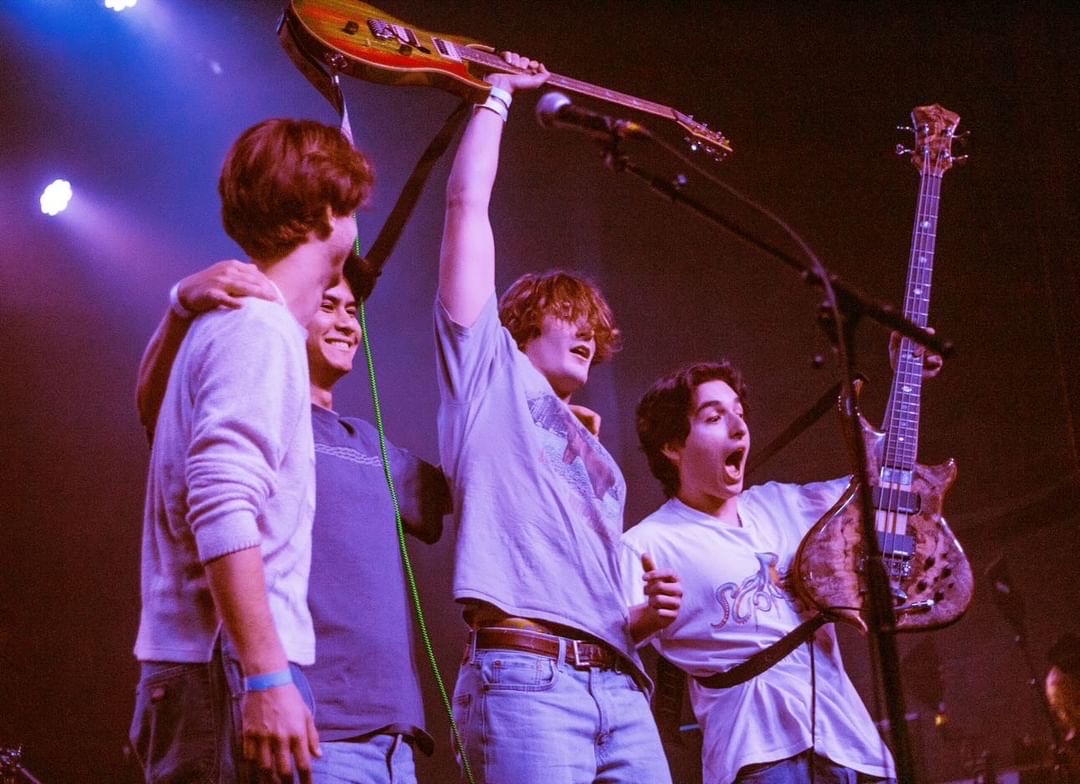With the COVID-19 outbreak and Arizona becoming one of the hot spots for COVID-19 in the United States, students at the University of Arizona have joined forces to support communities most affected by COVID-19.
A group of UA students stood out with their community service by making face shields in addition to donation drives. Robert Owens, a graduate student in the Human Rights Practice Program, is the leader of this project.
Born in Orlando, Fla., Owens, who has lived in Tucson for 23 years, came up with the idea of making face shields when he saw a post from Pima County asking for people who had a 3D printer to make face shields due to a lack of equipment. Owens contacted one of his close friends who had a 3D printer.
RELATED: Dr. Christian Bime: Fighting the pandemic one patient at a time
In the beginning, Owens paid for everything. Then he started receiving more donations and support. His project called the attention of a company specialized in 3D printing technology, Stratasys, which has donated face shields to the project. More companies have decided to help with donations to support the success of Owens’ project.
“We were able to get a donation of 300 lbs of canned green beans from Sam’s Club after we discussed what we were doing with them. We also received interest from Gospel Rescue Mission and Caring Ministries in providing food,” Owens said via email.
All the face shields and food have been donated to the Navajo Nation, which has been badly affected by the pandemic with high amounts of COVID-19 cases that are now starting to flatten.
“[The Navajo nation] lacked access to many resources we take for granted. It made sense to me to turn my attention there,” Owens said in an email.
Rome Robbins, a senior at UA pursuing a degree in computer science, received an invitation from Owens to be part of the project, which Robbins enthusiastically accepted.
“I would’ve jumped on any opportunity to help, no matter what form it took,” Robbins said via email.
RELATED: An editor’s timeline of COVID-19
According to Robbins, the group did run into initial difficulties while producing the face shields.
“The acrylic and frames aren’t always made to the exact required specifications (a side effect of quick mass production), so we found that the frame hooks required more tension,” Robbins said in an email.
After gluing, taping and drilling, they finally found a material that would give more tension to the mask: zip ties.
“[The team] found that [zip ties] could be tied closely enough to keep all the hooks tight and prevent the acrylic from popping off if grabbed. Another advantage of zip ties have been their cost-effectiveness,” Robbins said via email.
Owens highlighted the idea of giving back to the community; he mentioned that we are all at risk to be in difficult positions. Additionally, he added that during a crisis like this, it is important to get together and help to be able to survive and rebuild.
Robbins was on the same page as Owens, saying everyone has a right to live without being scared for no having the resources to protect themselves.
“Humans are social creatures, and we need to take care of our society for that society to take care of us. It’s just right,” Robbins said in an email.
For volunteer Skyler Cully, a senior student studying a double degree in family studies & human development and molecular and cellular biology, volunteering came form a personal place. Skyler had a full spinal fusion for scoliosis, she was in a wheelchair for about a year. Her brother had the same medical issue as well. Cully had experienced both sides of the coin from being a patient and also a caregiver for her brother.
“You can step up if you see something that’s missing in your community and there’re ways to do it… even if you feel like you don’t have resources,” Cully said.
RELATED: Phishing scam claims university distributing Cares Act funds
Cully confessed she was not able to donate materials to the project, but she was able to donate her time through assembling face shields and driving supplies to the Navajo Nation. Cully enjoys the drive and gets the opportunity to visit a place she had never been to before volunteering.
She stated that the drive put everything in perspective because she could directly interact with the people the team is helping. One thing she didn’t enjoy that much was the finger blisters.
When Owens started this project, he was not sure how successful it would be, now as the project is gaining more support, the team is maintaining motivation to continue helping until either COVID-19 or a lack of supplies are no longer an issue.
According to Owens, “Our current plans are to provide face shields to the White Mountain Apache [Tribe] as they are facing a similar situation to the Navajo Nation.”
Follow Diana Ramos on Twitter



